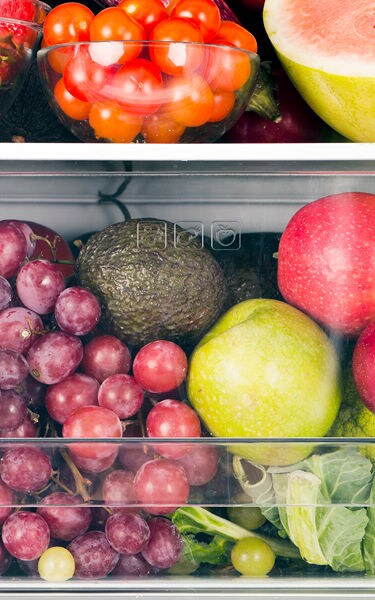With 1/3 of the world’s food becoming waste, it’s time we all do our bit to help fix the issue.
Our Respect Food project is all about that. Whilst fixing the issue may sound like a difficult thing to do, we want to show you that it’s easier than you may think. We’ve innovated and created especially for this cause. Our IonFresh technology neutralises odours in the fridge to keep every one of your foods fresh and tasty. We believe that the impact of food waste can be reduced. Small, helpful habits build up over time, and these begin in our own kitchens.
Take a look at these 6 storage essentials that every kitchen needs to make their food go the extra mile.
1. Foil
Using aluminium foil is an excellent way of preserving your food whilst maintaining the freshness that makes it so tasty. Foil completely insulates your food from oxygen, moisture, heat, and bacteria, which means that not only is your food kept protected from going bad quickly, but no smelly odours get into it either. Foil is best for storing freshly made food like sandwiches. Never use it for storing acidic foods such certain fruits and vegetables like cabbages and tomatoes, as the taste of them can be altered quickly.
2. Cling film
Like foil, cling film offers a hard barrier to protect your food against unwanted bacteria. Except this time, you can use plastic wrap to store more acidic foods such as cut produce. However, it can be difficult when it comes to storing high-fat foods such as fried meats and cheese, so it’s best to look at the instructions on the packaging. Be sure to cover all surfaces thoroughly with the wrapping, and to change it whenever you handle the food.
3. Airtight containers
Air isn’t good for our food, at least not when it comes to needing to store it for a long time. Airtight containers are cheap, useful, and efficient. These containers are especially useful for storing things like produce, leftover canned goods, and meats in the fridge to prevent cross-contamination.
4. Resealable bags
Another example of something that helps keep your food away from air, resealable bags are a compact alternative to plastic and glass containers. They are perfect for storing foods that don’t take up too much space, such as grated cheese.
5. Tins and cans
With food, we all love two things: taste and freshness. Canning your food is a useful way of preserving both, and there are so many things you can use it for too! Dairy, fruits and vegetables, meats and poultry, and fish are only some examples. Canning involves heating foods in containers to destroy any potentially harmful micro-organisms, completely sealing your food from air in the process while maintaining its taste and texture.
6. Jars
For those who don’t like preserving their food in plastic, glass jars do the job just as well, and there is a range of foods you can store in them. Jars are best for storing dry pantry items including pasta, cereals, and dried fruit, provided you keep them in cool, dry conditions. What’s more is that they’re easily resealable and protect your food well.
By taking steps like the 6 above, less food is wasted and potentially less money too! Food is far tougher and resilient than we think, so let’s make the most of it by storing it properly. See our tips section for further information on how to store specific goods, such as dairy products, fish, and sandwich spreads, so that they stay fresher for longer.
Sources:
https://www.nidirect.gov.uk/articles/storing-food-safely
http://www.canning-food-recipes.com/canning.htm
http://www.simplebites.net/eat-well-spend-less-how-to-store-pantry-food-for-maximum-shelf-life/
Distribuie



